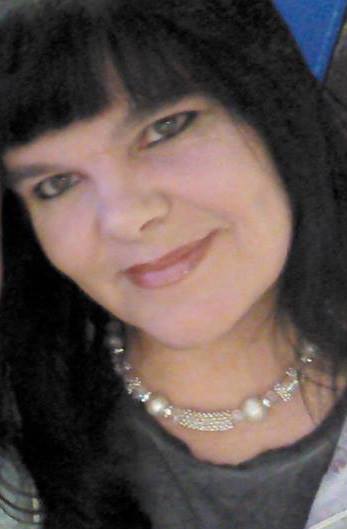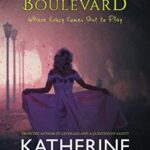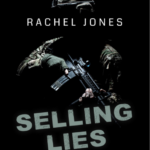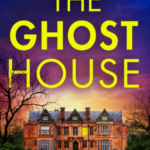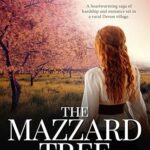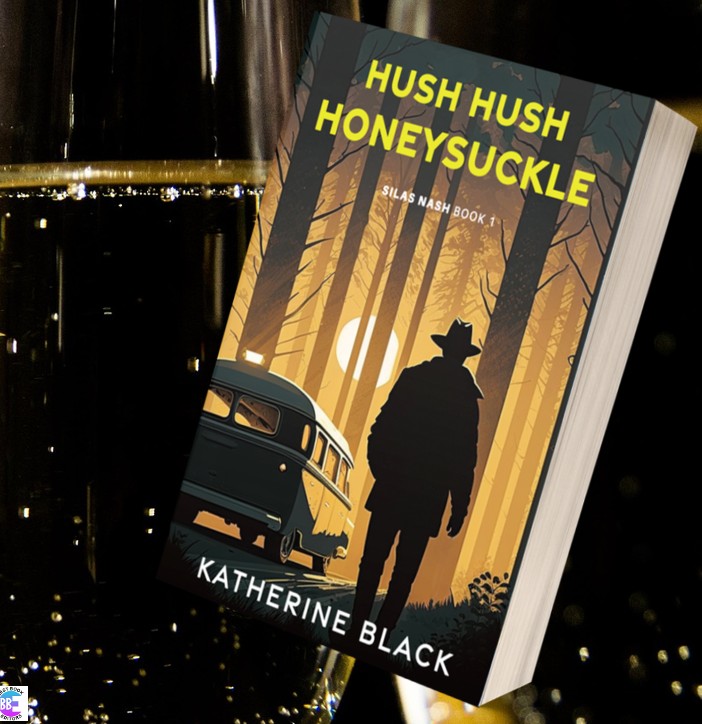 We would like to introduce Jorge Sánchez López, Author of Dry Ice, a crime and drama novel published by Canadian press Clublighthouse Publishing and Nunca debiste atravesar esos parajes, by Extravertida, a company located in Seville. The latter will be translated into English with the name of Deep Into the Heathen Wilderness. He writes short stories and poetry, and his first collection was Remontar la Corriente, by Libros Indie.
We would like to introduce Jorge Sánchez López, Author of Dry Ice, a crime and drama novel published by Canadian press Clublighthouse Publishing and Nunca debiste atravesar esos parajes, by Extravertida, a company located in Seville. The latter will be translated into English with the name of Deep Into the Heathen Wilderness. He writes short stories and poetry, and his first collection was Remontar la Corriente, by Libros Indie.
This multifaceted Spanish writer has background and training as a psychologist, content editor, philologist and translator. He intends to upgrade the literary scene from his particular narrative perspective.
BBE: Welcome. Let’s get to know you first before we talk about your books. While my team alter the bright lights to shine—just so, tighten the thumbscrews and hook up the polygraph; why don’t you start at the beginning and tell us about your early life and upbringing?
Jorge: I was born in Madrid and raised on the outskirts of the city. Poetry and music have been with me for as long as I can remember. I’ve got two sisters. Apart from them, Mum, Dad, and my grandparents have conformed my character. I used to be keen on basketball. I dreamed of setting a radio programme and often pretended to be broadcasting a show with my sister and cousins.
BBE: Where are you from, and where do you live now?
Jorge: I live in Fuenlabrada, a medium-sized town, and work in a similar one. I lived in a village in Ciudad Real for four years when I was little. That’s why I’m sure I’m an urban man who agrees to be surrounded by nature from time to time.
BBE: how did you perform at school, top of the class, or the child they said would never amount to anything as long as he had a hole in his—inkwell?
Jorge: In primary school, I was a model student. I excelled at Spanish language and literature, but I ended up reading English Studies. I was average in high school, especially in maths, and technical drawing was a nightmare. I had a hard time understanding physics.
BBE: Where are you now? Tell us a bit about your life, work, family?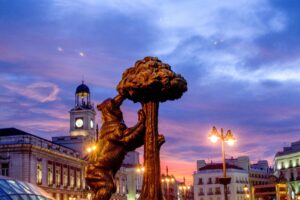
Jorge: I live with my mom and one of my sisters. My other sister lives on her own, as does my father. I have two nephews. I work as an English teacher, preparing teenage and adult students to sit for Cambridge Exams. After being a leisure instructor and Corporate Social Responsibility consultant in a project with the Spanish International Cooperation Agency, it’s a stable job. I’ve been a training technician, a factory worker at a binding company and worked in a supermarket. Along with being a private teacher, I’ve held posts as an administrative clerk, too, among many other roles.
BBE: Where do you go when the world gets scary?
Jorge: I go to a big park to walk and think about everything, or I take refuge in music and books.
BBE: Which five people, alive or dead, would you invite to a dinner party?
Jorge: Surely some friends and family, including those that are with us in our hearts. If I could speak to any author, it might be E.M. Forster, author of Passage to India and Virginia Woolf or Coleridge and Rimbaud.
BBE: What is your method for writing?
Jorge: I have some stimulus that triggers an insight. From there, I let it grow in my head until it takes shape. Someting ignites the flame and I just write it. I take small notes and prepare to write what has taken form. Sometimes I need advice from doctors or lawyers. It’s often about asking yourself the right questions and researching them. It’s not difficult to find experts. If they’re not available, I watch documentaries or read technical stuff and other authors. With short stories and poetry, I improvise. Something ignites my burn, and I just write it.
I write with instrumental music playing and conceive the text as a piece of art. It can be accompanied by pictures, playlists or be made into a theatre play. It can have a public side, showcased in public readings, event tours and collaborations with other artists.
BBE: Favourite food, drink, pet, film and book?

Jorge: Food: Meat, pasta and rice.
Drink: Coffee and beer, without ignoring others.
Pet: Cat, I had a cat and small dog, but none now.
Film: Lost in Translation. The Sheltering Sky.
Book: Death of a Salesman, by Arthur Miller. King Lear, by Shakespeare.
BBE: What makes you different?
Jorge: I infuse my texts with a poetic touch that pervades everything I write. I use double meanings, a subtext that allows further analysis, and a mix of genres.
BBE: And how did you come to writing?
Jorge: It’s something that I’ve done from childhood. I started with poetry. Later, I wrote manuals and content for training courses. It all evolved from there. I always wanted to study Literature. I had a great high-school teacher who used to work for a university, too. He introduced me to Calderón de la Barca, James Joyce, Baudelaire, Virginia Woolf, and all the authors that matter to me. I’ve written for theatre, essays and novels. My Philosophy teacher is equally to blame.
BBE: What are your influences and your writing ethos?
Jorge: I am influenced by Samuel Beckett and theatre of absurd, philosophy, psychology and social realism, including Pío Baroja, Blasco Ibáñez and the dirty realism of Carver, Fante and Bukowski. I am also in debt with Sofocles, Shakespeare, the Romantic poets, Charlotte Bronte and Sylvia Plath, and obviously with suspense and mystery writers including Patricia Highsmith, Mary Higgins Clark. I guess I have learned from African-American writers such as Amiri Baraka and Toni Morrison. I enjoy crime fiction like that of Pierre Lemaitre, Toni Hill and Harlan Coben, as well as Irish theatre and poetry.
BBE: How far have you come, and where are you going with your writing?
Jorge: I have worked in different genres, ensuring that in narrative, I am somebody who goes beyond crime and detective novels to encompass them with social criticism, drama and embellished scenes. I use the theatrical method so that with a few elements, the picture is vivid. I don’t know if I’m better at this or writing short stories. I might only produce a few short-story books, but I’d like them to be among the best within my literary work. At the same time, I have ongoing projects to experiment in novel writing. My certificate says I can be a translator, which has come in handy for my own texts. I’ve also translated John Donne’s poetry. I am supposed to be able to correct and translate books and manage cultural centres. However, I want to focus on my own writing and test myself in different arenas. I will not fall into the trap of writing the same book on a loop, although my style is fairly recognisable.
BBE: Ready—Set—Go. Tell us about your books in order of publication?
Jorge: My first works were written in Spanish: Errática Textura, a poetry collection, and Aire y Ángeles, a translation from John Donne for Editorial Celesta. This one’s a bilingual edition.
Remontar la Corriente is a short-story collection. It’s about the failure of the American dream and how people reinvent themselves. It has humour, social criticism and philosophy. Despite the hard stories, the message is that the sun always rises again.
My crime and suspense novels are Dry Ice, by Clublighthouse Publishing, available on Amazon and Barnes and Noble. It’s about a death in a spa with no apparent evidence.
Nunca Debiste atravesar Esos Parajes, is in the translation stage for a Spanish and American distributor. It’s about the disappearance of children in Minnesota, investigated by a K-9 trainer. She is a young woman in turmoil when she joins the FBI. It is based on Fargo, Mind Hunter, and on writers like Nathaniel Hawthorne and Edgar Allan Poe, with the influence of Spanish and Nordic thriller writers. The environment, with iced lakes, abandoned house and secret organisations, is perfect for my story.
 DRY ICE
DRY ICE
Publisher: Clublighthouse Publishing
- ASIN: ASIN : B095Y4QRYJ
- ISBN-13 : 978-1772171679
At a resort and urban complex in Oropesa del Mar, on the Levantine coast of Spain, Inspector Almanzor is ordered to investigate the death of Malory, an Irish tenant. She was in a hot tub with her husband, Brendan. While not rejecting the hypothesis of suicide due to the lack of prints, the police team engages in a case where the only clue is the presence of dry ice or carbonic snow in the water. The substance is usually harmless, but in high concentration, it can cause a disturbingly sweet death.
The death leads Almanzor and his team to focus on the couple’s personal relationships. Gerard, the urban development real estate owner, arouses suspicion, as does the organised crime emerging in the area.
The reader has access to the personal view and memories of the victim’s family and friends. Brendan conducts a parallel investigation of the crime. Adriana, a friend and colleague of Malory, presents psychiatric problems due to the trauma of witnessing the crime. Eileen, sister of the deceased, and Sinead, her niece, reveal details of their intimate life. Anthony and Daniela are neighbours and key to reconstructing the woman’s life in an environment where nothing is as it seems.
Amazon (check by country)
https://www.amazon.com/-/es/Jorge-Sánchez-López-ebook/dp/B095Y4QRYJ/ref=sr_1_2?
Also printed in Spanish as Hielo Seco
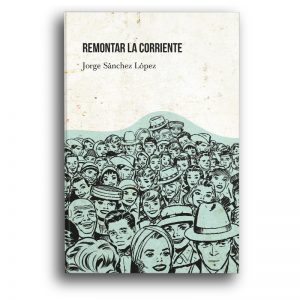 Remontar la corriente (Spanish edition)
Remontar la corriente (Spanish edition)
Libros Indie
ISBN-13 : 978-8417721480
Twenty-two stories showcasing the longings, complexes and contradictions of our current social lifestyle. A portrait of the experiences of individuals who, in their ordinary character, are curiously familiar and, at the same time, unusual. With a realistic style, dreamlike elements and minimising ornamentation, the book has a deep lyricism in exploring simple things. It has light touches of irony, and the author reflects on the loss of innocence. The stories touch on social injustice, the search for personal identity, the crisis of family and love relationships, the need to have illusions. It’s how people embrace and overcome a double-edged routine to win out over circumstance and health problems. They respect others, adapt and change. A look at what’s hiding behind the curtain in the human landscape. This book receives the inheritance of different literary traditions to reveal the magic surrounding us.
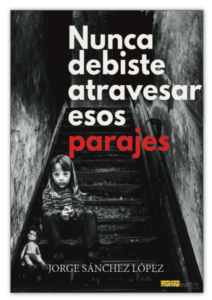 Nunca Debiste Atravesar Esos Parajes
Nunca Debiste Atravesar Esos Parajes
(In Spanish, soon to be translated as Deep Into the Heathen Wilderness)
Editorial Extravertida
ISBN: 9788412119725
https://extravertida.es/producto/nunca-debiste-atravesar-esos-parajes/
Heather Parsons, a police officer, has joined the Minnesota FBI as a dog handler and homicide investigator. She joins forces with Frank, a more experienced inspector. Several girls have been murdered, and their bodies are marked with paedophile symbols. It puts state security forces and volunteer teams on alert around the country.
A crime novel where the tension and dramatic interest increase as the story unfolds. Despite the suffering and the romantic past of parents, siblings, suspects and witnesses, everybody comes under the hammer of suspicion. The agents undergo a transformation in their understanding of life and death. They open themselves to their fears and failings and deepen their appreciation for the loved ones closest to them.
BBE: Which is the favourite of your books?
Jorge: It is hard to say. Technically, the first person and the physical environment of Nunca Debiste Atravesar Esos Parajes make it more accomplished, with a more significant potential impact.
Dry Ice has been my first international work. It features a lot of different characters. It reminds me of the film Crash, but with everybody converging regarding the mystery. It’s the most original of my books. Dry Ice is a psychological thriller in the style of Patricia Highsmith, with modern elements.
Remontar la Corriente, will become an indie classic, in my opinion. It’s the one that’s had the most readers, and it appeals to people of all ages.
BBE: And your favourite character, how did they come about? What do you like or dislike about them?
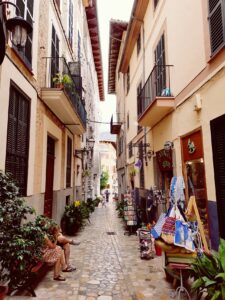
Jorge: I have two. Almanzor is in Dry Ice. He also features in a prequel that I’m working on. I take the character at different ages in his life, but the books are independent and can stand alone. He’s based on a criminology teacher that I had. He’s ironic, sly and straight speaking, but brave, with a developed sense of justice.
For my secondary characters, I follow costumbrismo, a trend initiated by Galdós in Spain. It means to mirror the way they speak, dress and behave, and includes local dialects and mannerisms. I write about people from Colombia, Ireland and Russia, as well as old and young characters.
In Nunca Debiste Atravesar Esos Parajes, my character, Heather Parsons, is based around a specific type of woman. She’s a mix between Clarice Starling, the actress Hilary Swank, the reporter Erika from Camilla Lackberg’s books, and ordinary women worldwide. She epitomises good and justice, but she may change in future books. In the first one, she’s a police officer who loses her innocence when faced with violence and harsh reality for the first time. She could be bolder and more ironic, but I might fix it next time. I’d say I’m prouder of the plot and style here, while the Spanish novel is stronger with regard to its characters, always overall I’m happy with the results.
BBE: Tell us about your writing achievements and about things that haven’t worked so well for you?
Jorge: For every triumph comes a hundred times, ‘No,’ or just silence. I’ve sold my books at events after having manuscripts accepted, but working with indie companies makes it impossible to become a bestseller overnight. My most outstanding achievement is creating my brand and finding my voice in an era where many books look the same. We’re all rowing to make it happen. People think that the writer is a sacred figure whose books sell by magic. Despite having books traditionally published, there’s still a lot of promotion to do. You have to be creative and cooperate with other artists. It’s essential to make yourself known and ensure you have readers. I started with poetry and had a book sell nothing, no matter how well it was written or the time I’d spent. I learned from that, though as my work wouldn’t be the same without that experience. I had to do two degrees to find stable work and had a hard time after the terrible 2008 crisis. But as someone once told me, training years are never lost. If you are imaginative, they shine their light one way or another.
BBE: What are you working on?
Jorge: The English translation of Deep Into the Heathen Wilderness. I’m working on the third layer of a book set in Spain in the 1990s. And when I finish, I’ll write the second part of the Minnesota saga.
BBE: Where do you see yourself in five years?
Jorge: I’d like to be writing more flexibly and incorporating different genres into my work. It’s a balance of venturing into the new but keeping the integrity, drama, social issues, thriller and love within the stories. I have an idea for new characters, but sometimes they don’t obey me. I might surprise myself by taking on any new project. Writing is a social weapon for me, and if I succeed, I would like to contribute to help people. Clublighthouse donates a percentage of funds to animal charities. I have assisted on a project with my local hospital to help children. I am keen to raise awareness of problems and help to solve them, no matter how small my contribution is.
BBE: Which is your favourite cover? How did you come up with it, and did you do it yourself?
Jorge: Nunca Debiste Atravesar Esos Parajes. I chose it from several the editor offered me. It makes it look like a horror book, which is a touch that just happened as I wrote it. I didn’t expect it when I had the idea.
BBE: How do you market and promote your work?
Jorge: I attend events and speak to potential readers in the shop. It is a tailored sale. I have copies of my books available and talk to people to see if they would be interested in them. Without this, it wouldn’t be the same. Groups on Facebook, my blog and Instagram, are helpful too. Bookstagrammers are good support. I’ve participated in an online festival and hope to appear on the radio and in podcasts and newspapers. It’s something that I do for personal satisfaction.

BBE: Tips for other writers?
Jorge: Take time to develop your style. Don’t accept any offer by toxic companies. Read other authors and study what makes them good or bad. Know the conventions of your genre and decide if you want to follow or break them. Get some training, but mostly just look for potential stories in everyday life.
BBE: What will your epitaph say?
Jorge: In gratitude to his beloved beings. I am not good at this. But I’m a drop in the ocean that would like to have some verse on it.
BBE: Anything we haven’t covered? Write your own question and use the last one to say anything you’d like to say.
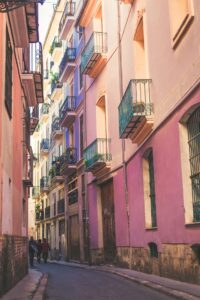
Jorge: It is gripping to reach readers from any part of the world. I hope to be able to learn from everyone around me.
All links for Dry Ice.
Amazon (check by country)
https://www.amazon.com/-/es/Jorge-Sánchez-López-ebook/dp/B095Y4QRYJ/ref=sr_1_2?
__mk_es_US=ÅMÅŽÕÑ&dchild=1&keywords=dry+ice+jorge&qid=1623241423&sr=8-2
Other stores:
Clublighthouse Publishing
https://clublighthousepublishing.com/productPage/Details/561
Barnes and Noble
https://www.barnesandnoble.com/w/dry-ice-jorge-sanchez-lopez/1139608883?ean=2940162370178
BBE: Thank you for taking our interview. We hope you’ve enjoyed it. Best Book Editors wish you every success with your career, with life and with you.


